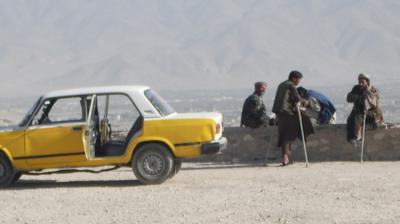Mid-term Evaluation Report of the National Solidarity Programme (NSP), Afghanistan
How to cite this publication:
Sultan Barakat (team leader) and Arne Strand ( team member) (2006). Mid-term Evaluation Report of the National Solidarity Programme (NSP), Afghanistan. York: Post-war Reconstruction & Development Unit (PRDU), UoYork ( )
Twenty-five years of conflict has left Afghanistan with a profound need for extensive intervention to address reconstruction and development requirements, particularly in rural areas, many of which were never reached by consecutive governmental developmental plans. In 2002, the transitional administration of the country recognized that the legitimacy of the new government by the rural population depended in no small measure on its ability to deliver long-awaited assistance to rural communities across the country, and the idea for the National Solidarity Programme was born. The Programme was designed and initiated in 2003 under the Ministry of Rural Rehabilitation and Development (MRRD), and was financed by a consortium of international donors coordinated by the World Bank. The Programme attempts to target the needs of rural communities by employing community-driven development, delivered through a collaborative partnership, encompassing central government, local and international non-governmental organizations (NGOs), and the communities - represented by specially devised Community Development Councils (CDCs). Today, the NSP forms the central component of an architecture of national programmes managed by the MRRD, designed both to help the Afghan people to rebuild their lives and nation, and to demonstrate that the Afghan government, with technical assistance, could develop the inclusive governance structures required to sustain a stable state.



